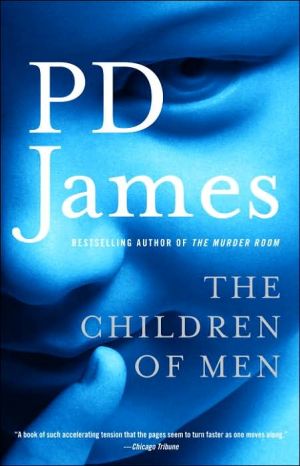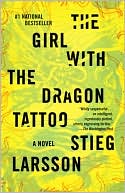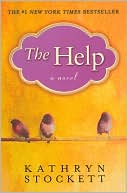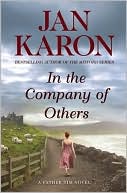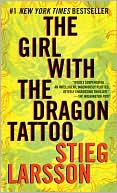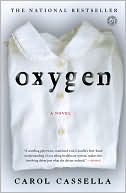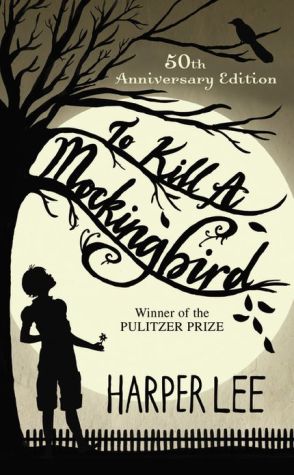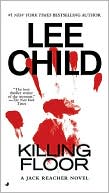The Children of Men
The year is 2021, and the human race is - quite literally - coming to an end. Since 1995 no babies have been born, because in that year all males unexpectedly became infertile. Great Britain is ruled by a dictator, and the population is inexorably growing older. Theodore Faron, Oxford historian and, incidentally, cousin of the all-powerful Warden of England, watches in growing despair as society gradually crumbles around him, giving way to strange faiths and cruelties: prison camps, mass...
Search in google:
Told with P. D. James' s trademark suspense, insightful characterization, and riveting storytelling, "The Children of Men" is a story of a world with no children and no future. The human race has become infertile, and the last generation to be born is now adult. Civilization itself is crumbling as suicide and despair become commonplace. Oxford historian Theodore Faron, apathetic toward a future without a future, spends most of his time reminiscing. Then he is approached by Julian, a bright, attractive woman who wants him to help get her an audience with his cousin, the powerful Warden of England. She and her band of unlikely revolutionaries may just awaken his desire to live . . . and they may also hold the key to survival for the human race.Publishers WeeklyIn her 12th book, the British author of the two series featuring Adam Dalgleish and Cordelia Gray ( Devices and Desires and An Unsuitable Job for a Woman , respectively) poses a premise that chills and darkens its setting in the year 2021. Near the end of the 20th century, for reasons beyond the grasp of modern science, human sperm count went to zero. The last birth occurred in 1995, and in the space of a generation humanity has lost its future. In England, under the rule of an increasingly despotic Warden, the infirm are encouraged to commit group suicide, criminals are exiled and abandoned and immigrants are subjected to semi-legalized slavery. Divorced, middle-aged Oxford history professor Theo Faron, an emotionally constrained man of means and intelligence who is the Warden's cousin, plods through an ordered, bleak existence. But a chance involvement with a group of dissidents moves him onto unexpected paths, leading him, in the novel's compelling second half, toward risk, commitment and the joys and anguish of love. In this convincingly detailed world--where kittens are (illegally) christened, sex has lost its allure and the arts have been abandoned--James concretely explores an unthinkable prospect. Readers should persevere through the slow start, for the rewards of this story, including its reminder of the transforming power of hope, are many and lasting. 125,000 first printing; BOMC main selection. (Mar.)
BOOK ONE\ OMEGA\ \ January—March 2021\ 1\ Friday 1 January 2021\ Early this morning, 1 January 2021, three minutes after midnight, the last human being to be born on earth was killed in a pub brawl in a suburb of Buenos Aires, aged twenty-five years two months and twelve days. If the first reports are to be believed, Joseph Ricardo died as he had lived. The distinction, if one can call it that, of being the last human whose birth was officially recorded, unrelated as it was to any personal virtue or talent, had always been difficult for him to handle. And now he is dead. The news was given to us here in Britain on the nine o’clock programme of the State Radio Service and I heard it fortuitously. I had settled down to begin this diary of the last half of my life when I noticed the time and thought I might as well catch the headlines to the nine o’clock bulletin. Ricardo’s death was the last item mentioned, and then only briefly, a couple of sentences delivered without emphasis in the newscaster’s carefully non-committal voice. But it seemed to me, hearing it, that it was a small additional justification for beginning the diary today; the first day of a new year and my fiftieth birthday. As a child I had always liked that distinction, despite the inconvenience of having it follow Christmas too quickly so that one present – it never seemed notably superior to the one I would in any case have received – had to do for both celebrations.\ As I begin writing, the three events, the New Year, my fiftieth birthday, Ricardo’s death, hardly justify sullying the first pages of this new loose-leaf notebook. But I shall continue, one small additional defence against personal accidie. If there is nothing to record, I shall record the nothingness and then if, and when, I reach old age – as most of us can expect to, we have become experts at prolonging life – I shall open one of my tins of hoarded matches and light my small personal bonfire of vanities. I have no intention of leaving the diary as a record of one man’s last years. Even in my most egotistical moods I am not as self-deceiving as that. What possible interest can there be in the journal of Theodore Faron, Doctor of Philosophy, Fellow of Merton College in the University of Oxford, historian of the Victorian age, divorced, childless, solitary, whose only claim to notice is that he is cousin to Xan Lyppiatt, the dictator and Warden of England. No additional personal record is, in any case, necessary. All over the world nation states are preparing to store their testimony for the posterity which we can still occasionally convince ourselves may follow us, those creatures from another planet who may land on this green wilderness and ask what kind of sentient life once inhabited it. We are storing our books and manuscripts, the great paintings, the musical scores and instruments, the artefacts. The world’s greatest libraries will in forty years’ time at most be darkened and sealed. The buildings, those that are still standing, will speak for themselves. The soft stone of Oxford is unlikely to survive more than a couple of centuries. Already the University is arguing about whether it is worth refacing the crumbling Sheldonian. But I like to think of those mythical creatures landing in St. Peter’s Square and entering the great Basilica, silent and echoing under the centuries of dust. Will they realize that this was once the greatest of man’s temples to one of his many gods? Will they be curious about his nature, this deity who was worshipped with such pomp and splendour, intrigued by the mystery of his symbol, at once so simple, the two crossed sticks, ubiquitous in nature, yet laden with gold, gloriously jewelled and adorned? Or will their values and their thought processes be so alien to ours that nothing of awe or wonder will be able to touch them? But despite the discovery – in 1997 was it? – of a planet which the astronomers told us could support life, few of us really believe that they will come. They must be there. It is surely unreasonable to credit that only one small star in the immensity of the universe is capable of developing and supporting intelligent life. But we shall not get to them and they will not come to us.\ Twenty years ago, when the world was already half convinced that our species had lost for ever the power to reproduce, the search to find the last-known human birth became a universal obsession, elevated to a matter of national pride, an international contest as ultimately pointless as it was fierce and acrimonious. To qualify the birth had to be officially notified, the date and precise time recorded. This effectively excluded a high proportion of the human race where the day but not the hour was known, and it was accepted, but not emphasized, that the result could never be conclusive. Almost certainly in some remote jungle, in some primitive hut, the last human being had slipped largely unnoticed into an unregarding world. But after months of checking and re-checking, Joseph Ricardo, of mixed race, born illegitimately in a Buenos Aires hospital at two minutes past three Western time on 19 October 1995, had been officially recognized. Once the result was proclaimed, he was left to exploit his celebrity as best he could while the world, as if suddenly aware of the futility of the exercise, turned its attention elsewhere. And now he is dead and I doubt whether any country will be eager to drag the other candidates from oblivion.\ We are outraged and demoralized less by the impending end of our species, less even by our inability to prevent it, than by our failure to discover the cause. Western science and Western medicine haven’t prepared us for the magnitude and humiliation of this ultimate failure. There have been many diseases which have been difficult to diagnose or cure and one which almost depopulated two continents before it spent itself. But we have always in the end been able to explain why. We have given names to the viruses and germs which, even today, take possession of us, much to our chagrin since it seems a personal affront that they should still assail us, like old enemies who keep up the skirmish and bring down the occasional victim when their victory is assured. Western science has been our god. In the variety of its power it has preserved, comforted, healed, warmed, fed and entertained us and we have felt free to criticize and occasionally reject it as men have always rejected their gods, but in the knowledge that despite our apostasy, this deity, our creature and our slave, would still provide for us; the anaesthetic for the pain, the spare heart, the new lung, the antibiotic, the moving wheels and the moving pictures. The light will always come on when we press the switch and if it doesn’t we can find out why. Science was never a subject I was at home with. I understood little of it at school and I understand little more now that I’m fifty. Yet it has been my god too, even if its achievements are incomprehensible to me, and I share the universal disillusionment of those whose god has died. I can clearly remember the confident words of one biologist spoken when it had finally become apparent that nowhere in the whole world was there a pregnant woman: “It may take us some time to discover the cause of this apparent universal infertility.” We have had twenty-five years and we no longer even expect to succeed. Like a lecherous stud suddenly stricken with impotence, we are humiliated at the very heart of our faith in ourselves. For all our knowledge, our intelligence, our power, we can no longer do what the animals do without thought. No wonder we both worship and resent them.
\ Publishers Weekly - Publisher's Weekly\ In her 12th book, the British author of the two series featuring Adam Dalgleish and Cordelia Gray ( Devices and Desires and An Unsuitable Job for a Woman , respectively) poses a premise that chills and darkens its setting in the year 2021. Near the end of the 20th century, for reasons beyond the grasp of modern science, human sperm count went to zero. The last birth occurred in 1995, and in the space of a generation humanity has lost its future. In England, under the rule of an increasingly despotic Warden, the infirm are encouraged to commit group suicide, criminals are exiled and abandoned and immigrants are subjected to semi-legalized slavery. Divorced, middle-aged Oxford history professor Theo Faron, an emotionally constrained man of means and intelligence who is the Warden's cousin, plods through an ordered, bleak existence. But a chance involvement with a group of dissidents moves him onto unexpected paths, leading him, in the novel's compelling second half, toward risk, commitment and the joys and anguish of love. In this convincingly detailed world--where kittens are (illegally) christened, sex has lost its allure and the arts have been abandoned--James concretely explores an unthinkable prospect. Readers should persevere through the slow start, for the rewards of this story, including its reminder of the transforming power of hope, are many and lasting. 125,000 first printing; BOMC main selection. (Mar.)\ \ \ \ \ Kirkus ReviewsPerturbed by reports that sperm counts among British males have been steadily dwindling in recent years, the doyenne of the English detective story has interrupted her increasingly leisurely series of mystery novels (Devices and Desires, 1989, etc.) for a futuristic dystopia of sterility. Sometime in 1995—records the divorced, bereaved, ineffectual historian/ diarist Theodore Faron—the worldwide sperm count reached zero with the birth of one Joseph Ricardo, last of the Omega generation. Now, in 2021, graying England is frozen in a lifeless nightmare. Theo's cousin Xan Lyppiatt, Warden of England, rules absolute, attended by his Grenadiers and the State Security Police. Xan has consolidated his power by conscripting all immigrating Sojourners to manual labor at public works, encouraging mass suicides (the Quietus), whose survivors are paid a government bounty, and banishing convicted criminals to the Isle of Man, now converted into a penal colony—actions all approved by a populace so frightened of growing old, unprovisioned and uncared for, and so desperate for the warmth of the young that women routinely take to the streets wheeling prams stuffed with kittens or dolls. Approached by female student Julian on behalf of the Five Fishes, a tiny group outraged by Xan's dehumanizing regimen of fertility testing and enthusiastically assisted suicide, Theo finds himself first fruitlessly reasoning with his cousin, then suddenly pulled in by the miraculous, terrifying news of Julian's pregnancy, which she's determined to keep secret from Xan's ruling council whatever the costs to the Fishes—most of whom are clearly bound for harrowing fates—or the future of the race.Despite an opening as slow as anything in James's recent outings, the departure from her usual formula is brilliantly conceived—the note of sad mortality so powerfully sustained that James's benediction of hope is almost unbearable. (Book-of-the-Month Dual Selection for February)\ \ \ From the Publisher“Extraordinary … daring … frightening in its implications.”\ —The New York Times\ “She writes like an angel. Every character is closely drawn. Her atmosphere is unerringly, chillingly convincing. And she manages all this without for a moment slowing down the drive and tension of an exciting mystery.”\ —The Times (UK)\ \ \
